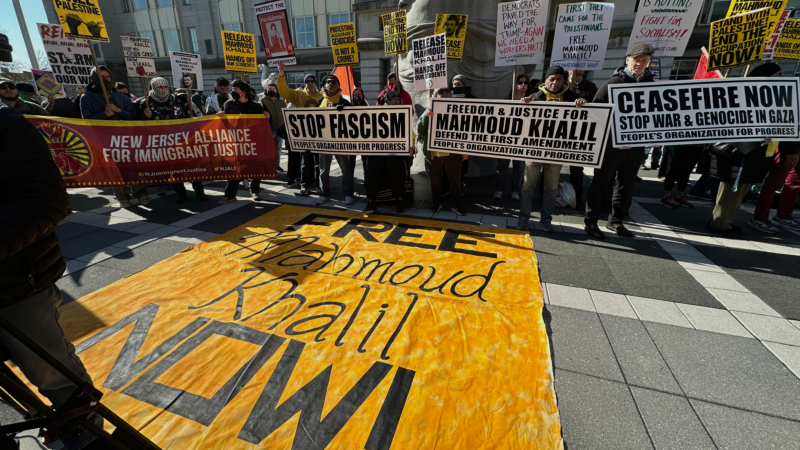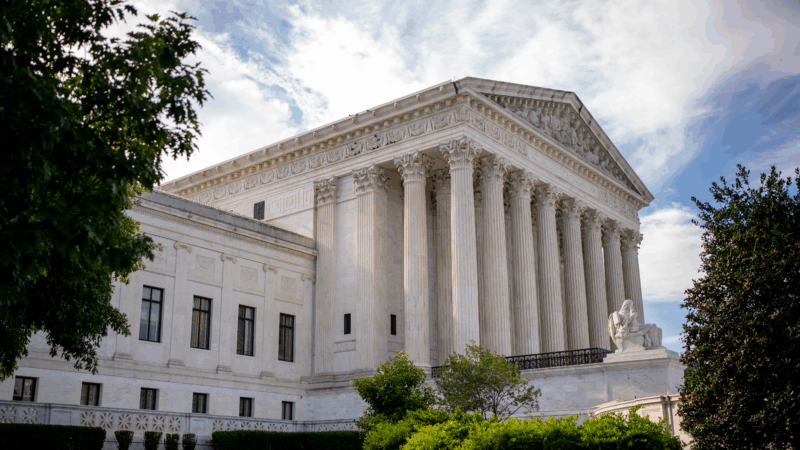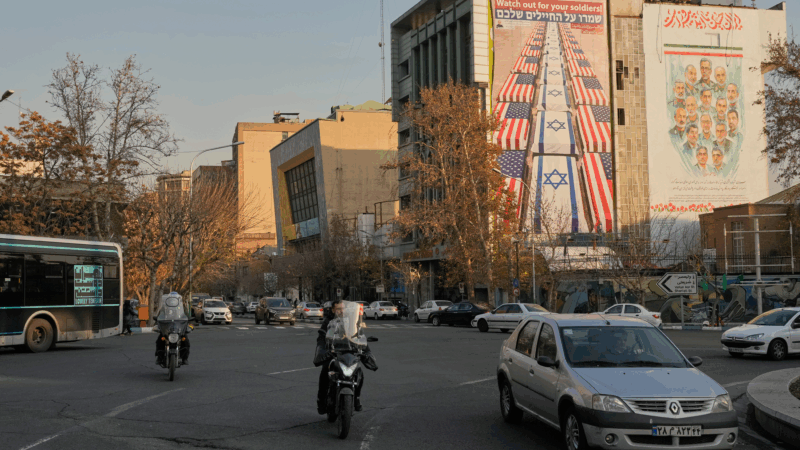The controversial and obscure law being used against immigrant student protestors
Pro-Palestinian activist Mahmoud Khalil who was detained in early March by U.S. immigration officials, is facing possible deportation for actions the government alleges goes against American foreign interests.
Khalil, a Columbia University graduate student, is a Green Card holder, married to a U.S. citizen. To justify his deportation, the government is invoking an obscure law that played a major role in shaping American immigration during the Cold War: the McCarran-Walter Act, or the Immigration Nationality Act of 1952.
Since last year, some pro-Palestinian protestors have been accused of antisemitism and of supporting terrorist organizations. Protestors deny this, arguing that criticism of Israel’s actions in Gaza and U.S. support should not be equated with antisemitism.
The Trump Administration has promised a crackdown.
“We know there are more students at Columbia and other Universities across the country who have engaged in pro-terrorist, anti-Semitic, anti-American activity, and the Trump Administration will not tolerate it,” President Trump posted on his social media last month. “We will find, apprehend, and deport these terrorist sympathizers from our country — never to return again.”
What does the law say?
The case of Mahmoud Khalil has raised the question of free speech rights for immigrants. The Trump administration argues that when it comes to non-citizens, there are limits to free speech. Pro-Palestinian protestors, they say, are supporting terrorism.
“It is a privilege to be granted a visa to live & study in the United States of America,” Homeland Security Sec. Kristi Noem posted on X last month. “When you advocate for violence and terrorism that privilege should be revoked and you should not be in this country.”
The First Amendment to the Constitution does not distinguish between citizens and non-citizens, and the Supreme Court has in the past ruled that the First Amendment applies to noncitizens.
But the federal government has almost total power over immigration, deciding who comes and stays in the U.S., and has in the past made that ruling based on whether or not it believes an ideology affects American foreign policy. Notably, in the 1950’s, during the Cold War, the Immigration and Nationality Act or the McCarran-Walter Act heavily monitored immigrants for communist ideology.
Passed in 1952, the act states that the U.S. government may deport “an alien whose presence or activities in the United States the Secretary of State has reasonable ground to believe would have potentially serious adverse foreign policy consequences for the United States.”
It was specifically designed to detain, deport and bar entry visas to communists. According to the U.S. Department of State, Pennsylvania Congressman Francis McCarren “expressed concerns that the United States could face communist infiltration through immigration and that unassimilated aliens could threaten the foundations of American life.”
The Trump Administration is now calling back to that policy.
In a memo obtained by the Associated Press, in order to determine the detention and deportation of Mahmoud Khalil, Secretary of State Marco Rubio wrote, “I have determined that the activities and presence of these aliens in the United States would have potentially serious adverse foreign policy consequences.” The memo repeatedly cites the Immigration and Nationality Act.
The McCarren-Walter or Immigration and Nationality Act: a storied past
But from its inception, the law had far reaching consequences beyond ideology.
“You have to go back to some ugly eras in American history to find precedents for what we’re seeing now,” says Professor Michael Kagan of the University of Nevada school of law.
Legal scholars and historians say the act further cemented racial and ethnic immigration quotas which were already part of the American system.
“McCarran, in particular, was a virulent anti-Semite. He just sort of thought Jews and communists were overlapping groups,” says Kagan.
In fact the act’s impact on Jewish immigration was severe, favoring Western and Northern Europeans. According to Muzaffar Chishti and Julia Gelatt at the Migration Policy Institute, “It closed the door on almost all new Asian immigration and shut out most European Jews and other refugees fleeing fascism and the horrors of the Holocaust in Europe.”
Kagan says that while these actions might seem like ancient history for most Americans, there are commonalities with what is going on today.
“We don’t like your political beliefs and what you have expressed. So we are going to kick you out of the country,” Kagan said.
Secretary of State Marco Rubio says he has revoked more than 300 visas. “We gave you a visa to come and study and get a degree, not to become a social activist that tears up our university campus. We’ve given you a visa and you decide to do that — we’re going to take it away,” Rubio said in a recent news conference.
Free speech advocates worry this establishes a dangerous precedent that could eventually be turned on American citizens with dissenting opinions – much like the red scare in the 1950’s did.
A decision about Mahmoud Khalil’s is expected soon.
‘My role was making movies that mattered,’ says Jodie Foster, as ‘Taxi Driver’ turns 50
Foster was just 12 years old when she starred in the 1976 film. "What luck to have been part of that, our golden age of cinema in the '70s," she says. Her latest film is Vie Privée (A Private Life).
Supreme Court appears likely to uphold state bans on transgender athletes
To date, 27 states have enacted laws barring transgender participation in sports.
Keep an eye out for these new books from big names in January
The new year begins with a host of promising titles from George Saunders, Julian Barnes, Jennette McCurdy, Karl Ove Knausgaard and more. Here's a look ahead at what's publishing this month.
Want to play a Tiny Desk concert? The 2026 Contest is now open for entries
The 2026 Tiny Desk Contest, our annual search for the next great undiscovered artist, is now officially open for entries.
Scott Adams, the controversial cartoonist behind ‘Dilbert,’ dies at 68
Adams announced in May that he was dying of metastatic prostate cancer. Thousands of newspapers carried his strip satirizing office culture from the '90s until a controversy in 2023.
As Iran’s protests continue, Israelis and Palestinians watch closely
There is broad support for the protests among Israeli officials, but Palestinians say they hope the Iranian regime stays in place and the protests die down soon.








